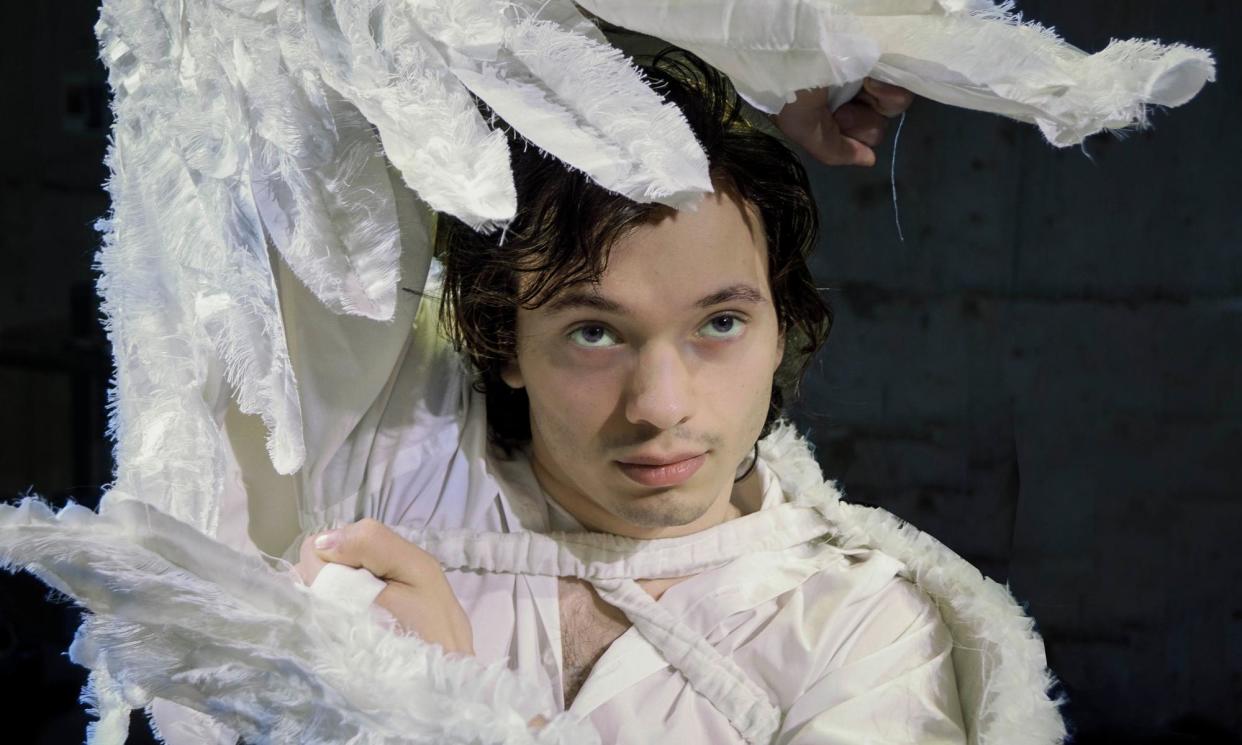Fame, lust and drugs: Dorian Gray staged as a genderfluid rock musical

It was Oscar Wilde’s only novel, but one whose subject matter about the desire for eternal youth still resonates more than 130 years after its publication. Now The Picture of Dorian Gray has been turned into a contemporary musical with an emphasis not just on self obsession and fame, but also gay sex and hard drug-taking.
“Oscar would be delighted for his novel to be adapted as a musical celebrating open queerness,” says Linnie Reedman, creator and director of Dorian: The Musical. “Yet our Dorian also has moral quandaries and tortuous moments.”
Opening at the Southwark Playhouse, one of London’s leading fringe venues, and following Sarah Snook’s recent one-woman Dorian Gray in the West End, the musical introduces radical changes to the novel. Published in 1891, it was unable to directly address homosexuality, which was then illegal. “Yet in the book, Basil Hallward is obviously infatuated with Dorian,” says Matthew Sturgis, the most recent Wilde biographer. “The novel had just a very, very few sexually implicit references, though in Wilde’s circles it was known he was primarily homosexual.”
The Irish-born, Oxford-educated Wilde had married Constance Lloyd in 1884, who bore him two sons. In its initial years the marriage was of solace to Wilde, and as seemingly conventional as his plays like An Ideal Husband and The Importance of Being Earnest.
Wilde’s first known gay relationship was with Robbie Ross, beginning in the mid 1880s, but his most chronicled was with Lord Alfred “Bosie” Douglas, which started in the same year as Dorian Gray was published. The following year Wilde wrote a poem, Two Loves, to Bosie, which was then printed in the literary magazine The Chameleon. It ended, famously, with the line: “I am the love that dare not speak its name.”
Both this poem and a remark about “a romance of feeling”, which Basil, the portrait artist, expresses to Dorian, were used against Wilde in his 1895 gross indecency trial over Bosie. He was found guilty and sentenced to two years of hard labour, which he spent in Pentonville and Reading prisons. After his release, he left for exile to France where he died in 1900.
In Wilde’s novel, Dorian is a self-centred young man while the more moral yet infatuated Basil is an artist, who paints the portrait which ages. Lord Henry Wotton is an aristocrat with a hedonistic view of life. In the musical, Dorian is a rock star, while Basil becomes Baz, a photographer whose image of Dorian gets older, and Lord Henry is now plain Harry, a record producer. There is also Sybil, with whom Dorian is initially in love, but, after losing his desire for her, she commits suicide.
“Ours is a genderfluid version with Dorian bisexual, like Wilde,” says Reedman. The musical has 20 songs, composed by Joe Evans, co-founder with Reedman in 2007 of Ruby in the Dust, which has staged over a dozen fringe and West End productions, in a style and sound similar to that of David Bowie. Their themes are about Dorian selling his soul for fame and fans in a sexually heightened and drug-fuelled world. In the original book Dorian simply visits an opium den. “But hard drugs are part of the music scene today,” says Reedman.
There are also sex scenes involving Dorian with both Harry and Baz.
Reedman has cast 21-year-old Alfie Friedman as Dorian. He previously had a role in Channel 4’s 2022 drama series The Undeclared War, has sung in a Stephen Sondheim tribute with his mother, Maria, the acclaimed singer, and, last month, was the lead in Laughing Boy at Theatre Royal Bath.
“We are delving into the dark side of the music world,” says Friedman. “It’s a cautionary tale. My Dorian is a young bisexual man exploring different places. A loner discovering his identity.”
Friedman also argues that the strong drugs and sex scenes are justified. “I think the audience will be more moved than shocked.”
The Picture of Dorian Gray runs until 10 August


